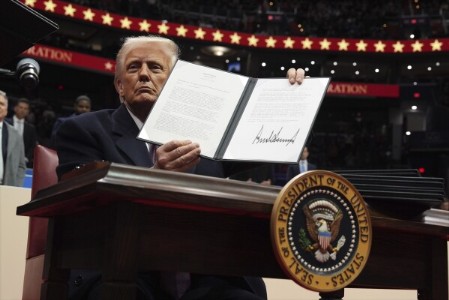51 pc Hindu parents in UK say their child experienced anti-Hindu hate in schools: Survey
Then Freedom of Information (FOI) requests were sent to all public schools identified as having South Asian students via the Department for Education (DfE) census.
Total Views | 126
London, Apr 20: The first of its kind study by the Henry Jackson Society on Hindu Hate in the United Kingdom found that 51 pc of parents of Hindu children reported that their child has experienced anti-Hindu hate in schools, while fewer than 1 per cent of schools with Indian students reported any anti-Hindu-related incidents in the last five years.

19 pc of Hindu parents believe schools are able to identify anti-Hindu hate. 15 per cent of Hindu parents believe schools adequately address anti-Hindu-related incidents. The Henry Jackson Society is a trans-Atlantic foreign policy and national security think tank based in the United Kingdom. Hindu community organisations and religious institutions across England were contacted asking to share their survey with eligible parents. In response, 988 volunteered their anonymous insights.
Then Freedom of Information (FOI) requests were sent to all public schools identified as having South Asian students via the Department for Education (DfE) census. The eligible parents were asked to share their incident reports of anti-Hindu bullying in school between 2017 and 2022. The quality of teaching Hinduism has been raised as a critical concern by the surveyed parents. Concerns centre around Hinduism being taught through an Abrahamic faith lens, affording inappropriate weight to 'Gods' and misunderstanding the key concepts. The misconceptions are said to be a direct cause of bullying in the classroom. The findings point to a distinct need for enquiry and consultation.
A study by think tank Henry Jackson Society:
— Anshul Saxena (@AskAnshul) April 19, 2023
Hindu students in UK are targets of bullying & racial discrimination in classrooms with Muslim pupils telling them to convert religion to make their lives easier or face "threats of hell for disbelievers" using terms such as "kaffir". pic.twitter.com/DC7Kbz0e71
The findings of this study add weight to the recommendations made by the Commission on Religious Education that there should be a statutory, national approach to teaching religious education subject to inspection. This study examined the prevalence of discrimination against Hindu pupils in schools in the UK and found that it is present in the classroom.
Incidents, in the main, emanate from peers but there have been concerns that some schools' approaches to teaching Hinduism are fostering prejudice. The Commission also recommended a wider lens on the subject that avoids a purely Abrahamic framework and access to national resources that can support all schools in teaching the complex and sensitive issues that arise.
--
Bharati Web







